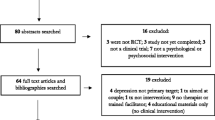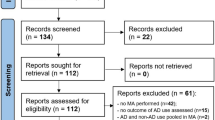Abstract
Prenatal depression is common and has been associated with risky maternal behavior, postpartum depression, and atypical child development. Still, its association with adverse perinatal outcomes is complex. The aim of our study was to look for this potential association in our region. The medical charts of women who were treated at our High-Risk Pregnancy Clinic and gave birth at our hospital were reviewed. The Edinburgh Postnatal Depression Scale (EPDS) was used to discover prenatal depression. Patients who reported past or current mental illness were excluded. We enrolled 202 women at a mean age of 32.81. Twin pregnancy was the most common reason for referral to the clinic (17.3%). The mean EPDS score was 4.63 (±4.66), with 15.3% scoring 10 or more. A significant correlation was found between the EPDS score and intrapartum fetal heart rate abnormalities, as well as with low birth weight. There were significant associations between the EPDS score and the maternal status of genetic disorder carrier, and the number of previous pregnancies, miscarriages, and elective termination of pregnancy. This study demonstrates a significant impact of the maternal psychological state on the obstetric outcome. In addition, we observed a significant association between maternal obstetric history, genetic data, and the risk of prenatal depression. Our study shows that completing the EPDS questionnaire is a very important part of the pregnancy follow-up, as it illuminates risk factors for prenatal depression and adverse perinatal outcomes.
Similar content being viewed by others
Data Availability
We used confidential data from the medical charts of our patients. Distribution of this data was not approved by our Institutional Review Board.
References
Ververs T, Kaasenbrood H, Visser G. Prevalence and patterns of antidepressant drug use during pregnancy. Eur J Clin Pharmacol. 2006;62:863–70.
Kendig S, Keats JP, Hoffman MC, Kay LB, Miller ES, Moore Simas TA, et al. Consensus bundle on maternal mental health: perinatal depression and anxiety. Obstet Gynecol. 2017;129(3):422–30.
Yedid Sion M, Harlev A, Weintraub AY, Sergienko R, Sheiner E. Is antenatal depression associated with adverse obstetric and perinatal outcomes? J Matern Neonatal Med. 2016;29(6):863–7.
Huang H-C, Sung F-C, Chen P-C, et al. Obstetric outcomes in pregnant women with and without depression: population-based comparison. Sci Rep. 2017;7(1):1–9.
Navaratne P, Foo XY, Kumar S. Impact of a high Edinburgh postnatal depression scale score on obstetric and perinatal outcomes. Sci Rep. 2007;6(10):1–5.
Fransson E, Örtenstrand A, HjelmstedtA. Antenatal depressive symptoms and preterm birth: a prospective study of a Swedish National Sample. Birth. 2011;38(1):10–6.
Choi SK, Park YG, Park IY, Ko HS, Shin JC. Impact of antenatal depression on perinatal outcomes and postpartum depression in Korean women. J Res Med Sci. 2014;19(9):807–12.
Doktorchik C, Premji S, Slater D, et al. Patterns of change in anxiety and depression during pregnancy predict preterm birth. J Affect Disord. 2020;227(10):71–8.
Tsakiridis I, Bousi V, Dagklis T, Sardeli C, Nikolopoulou V, Papazisis G. Epidemiology of antenatal depression among women with high-risk pregnancies due to obstetric complications: a scoping review. Arch Gynecol Obstet. 2019;300(4):849–59.
Cox J, Holden J, Sagovsky R, Detection of postnatal depression. Development of the 10-item Edinburgh postnatal depression scale. Br J Psychiatry. 1987;150:782–6.
Glasser S, Barell V. Depression scale for research in and identification of postpartum depression. Harefuah. 1999;136(10):764–8 Hebrew.
[Policy for detection women at risk for depression during pregnancy and childbirth] (2014) Ministry of Health, XXX(blinded manuscript), Public Health Circular 3/14. https://www.health.gov.il/hozer/bz03_2014.pdf. Accessed 09 April 2021. XXX(blinded manuscript).
Naja S, Al-Kubaisi N, Chehab M, et al. Psychometric properties of the Arabic version of EPDS and BDI-II as a screening tool for antenatal depression: evidence from Qatar. BMJ Open. 2019;9(9):1–7.
Yakupova VA. The impact of psychological and physiological conditions of motherhood on postnatal depression. Russ Psychol J. 2018;15(1):8–23 Russian.
Faul F, Erdfelder E, Lang A-G, Buchner A. G*power 3: a flexible statistical power analysis program for the social, behavioral, and biomedical sciences. Behav Res Methods. 2007;39(2):175–91.
IBM Corp. IBM SPSS Statistics for Windows, Version 25.0. Armonk: IBM Corp; 2017.
Dagklis T, Papazisis G, Tsakiridis I, Chouliara F, Mamopoulos A, Rousso D. Prevalence of antenatal depression and associated factors among pregnant women hospitalized in a high-risk pregnancy unit in Greece. Soc Psychiatr Epidemiol. 2016;51(7):1025–31.
Grote NK, Bridge JA, Gavin AR, Melville JL, Iyengar S, Katon WJ. A meta-analysis of depression during pregnancy and the risk of preterm birth, low birth weight, and intrauterine growth restriction. Arch Gen Psychiatry. 2010;67(10):1012–24.
Shafizadeh M, Mehdizadeh M. Relationship between maternal distress with fetus growth rate: mediator role of heart rate. J Appl Sci. 2009;9(1):193–6.
Martin CB Jr. Normal fetal physiology and behavior, and adaptive responses with hypoxemia. Semin Perinatol. 2020;32:239–42.
Berman W, Goodlin RC, Heymann MA, et al. Relationships between pressure and flow in the umbilical and uterine circulations of the sheep. Circ Res. 1976;38(4):262–6.
Mutiso SK, Murage A, Mukaindo AM. Prevalence of positive depression screen among post miscarriage women- a cross sectional study. BMC Psychiatry. 2018;18(1):1–7.
Bicking Kinsey C, Baptiste-Roberts K, Zhu J, Kjerulff KH. Effect of previous miscarriage on depressive symptoms during subsequent pregnancy and postpartum in the first baby study. Matern Child Health J. 2015;19(2):391–400.
González-Mesa ES, Arroyo-González ML, Ibrahim-Díez N, Cazorla-Granados O. Mood state at the beginning of the pregnancy and its influence on obstetric and perinatal outcomes. J Psychosom Obstet Gynecol. 2019;40(2):106–13.
Acknowledgments
We wish to thank Ms. I. Levi for her support in implementing the EPDS questionnaire in our clinic.
Funding
This research did not receive any specific grant or honoraria, and did not used any relationship from funding agencies in the public, commercial, or not-for-profit sectors.
Author information
Authors and Affiliations
Contributions
S. Soltsman - study concept and design, data collection, manuscript writing and editing. Y. Tomsis - study concept, data analysis, manuscript writing and editing. A. Konforty - study concept and design, data collection, manuscript editing. I. Ben Shlomo - study concept, manuscript editing. All authors read and approved the final manuscript.
Corresponding author
Ethics declarations
Ethics Approval
The study was conducted retrospectively from data obtained for clinical purposes, and was approved by the Institutional Review Board (approval No. 0074–17-POR).
Additional information
Publisher’s Note
Springer Nature remains neutral with regard to jurisdictional claims in published maps and institutional affiliations.
Rights and permissions
About this article
Cite this article
Soltsman, S., Tomsis, Y., Konforty, A. et al. The Impact of Prenatal Depression in Patients of High Risk Pregnancy Clinic on Obstetric Outcomes. Psychiatr Q 92, 1673–1684 (2021). https://doi.org/10.1007/s11126-021-09925-8
Accepted:
Published:
Issue Date:
DOI: https://doi.org/10.1007/s11126-021-09925-8




